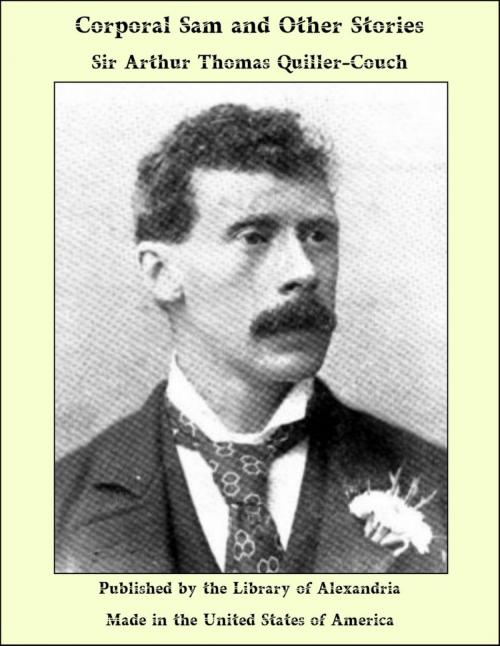Corporal Sam and Other Stories
Nonfiction, Religion & Spirituality, New Age, History, Fiction & Literature| Author: | Sir Arthur Thomas Quiller-Couch | ISBN: | 9781465593986 |
| Publisher: | Library of Alexandria | Publication: | March 8, 2015 |
| Imprint: | Language: | English |
| Author: | Sir Arthur Thomas Quiller-Couch |
| ISBN: | 9781465593986 |
| Publisher: | Library of Alexandria |
| Publication: | March 8, 2015 |
| Imprint: | |
| Language: | English |
To begin with, after being ordered for one day (July 23rd) it had been deferred to the next; on reasonable grounds, indeed, for the town immediately behind the great breach was burning like a furnace; but it gave the troops an uneasy feeling that their leaders were distracted in counsel. Nor, divided by the river, did the artillery and the stormers work upon a mutual understanding. The heavy cannon, after a short experiment to the left of the great breach, had shifted their fire to the right of it, and had succeeded in knocking a practicable hole in it before dusk. But either this change of plan had not been reported to the trenches, or the officer directing the assault inexplicably failed to adapt his dispositions to it. The troops for the great breach were filed out ahead of the 38th, which had farther to go. Worst of all, they were set in motion an hour before dawn, although Wellington had left orders that fair daylight should be waited for, and the artillery-men across the Urumea were still plying their guns on the sea-wall, to dissuade the besieged from repairing it in the darkness. To be sure a signal for the assault—the firing of a mine against the hornwork—had been concerted, and was duly given; but in the din and the darkness it was either not heard or not understood. Thus it happened that the forlorn hope and the supporting companies of the Royals had no sooner cleared the trenches than their ranks shook under a fire of grape, and from our own guns. There was no cure but to dash through it and take the chances, and Major Frazer, waving his sword, called on his men to follow him at the double. Ahead of them, along the foot of the sea-wall, the receding tide had left a strip of strand, foul with rock and rock pools and patches of seaweed, dark and slippery. Now and again a shell burst and illuminated these patches, or the still-dripping ooze twinkled under flashes of musketry from the wall above; for the defenders had hurried to the parapet and flanking towers, and their fire already crackled the whole length of the strand.
To begin with, after being ordered for one day (July 23rd) it had been deferred to the next; on reasonable grounds, indeed, for the town immediately behind the great breach was burning like a furnace; but it gave the troops an uneasy feeling that their leaders were distracted in counsel. Nor, divided by the river, did the artillery and the stormers work upon a mutual understanding. The heavy cannon, after a short experiment to the left of the great breach, had shifted their fire to the right of it, and had succeeded in knocking a practicable hole in it before dusk. But either this change of plan had not been reported to the trenches, or the officer directing the assault inexplicably failed to adapt his dispositions to it. The troops for the great breach were filed out ahead of the 38th, which had farther to go. Worst of all, they were set in motion an hour before dawn, although Wellington had left orders that fair daylight should be waited for, and the artillery-men across the Urumea were still plying their guns on the sea-wall, to dissuade the besieged from repairing it in the darkness. To be sure a signal for the assault—the firing of a mine against the hornwork—had been concerted, and was duly given; but in the din and the darkness it was either not heard or not understood. Thus it happened that the forlorn hope and the supporting companies of the Royals had no sooner cleared the trenches than their ranks shook under a fire of grape, and from our own guns. There was no cure but to dash through it and take the chances, and Major Frazer, waving his sword, called on his men to follow him at the double. Ahead of them, along the foot of the sea-wall, the receding tide had left a strip of strand, foul with rock and rock pools and patches of seaweed, dark and slippery. Now and again a shell burst and illuminated these patches, or the still-dripping ooze twinkled under flashes of musketry from the wall above; for the defenders had hurried to the parapet and flanking towers, and their fire already crackled the whole length of the strand.















